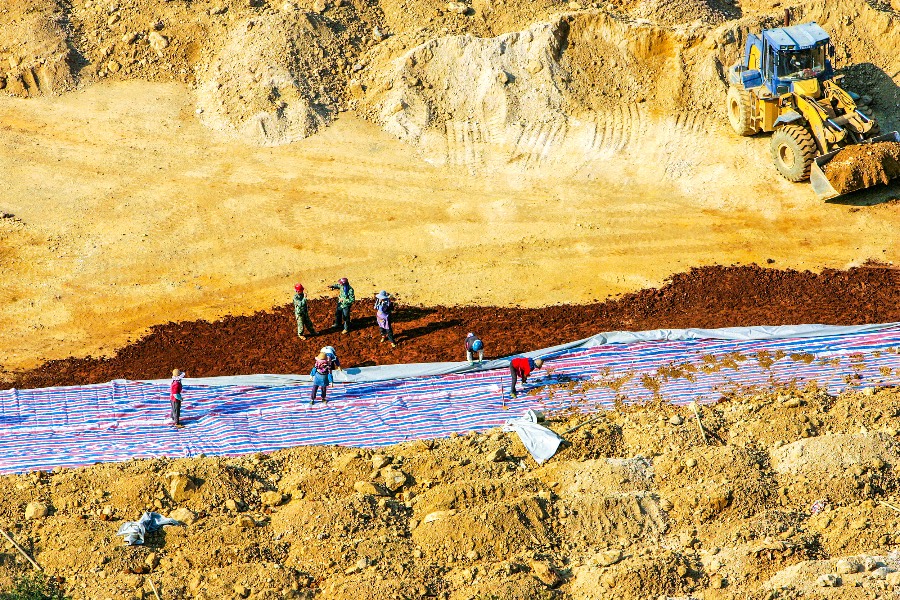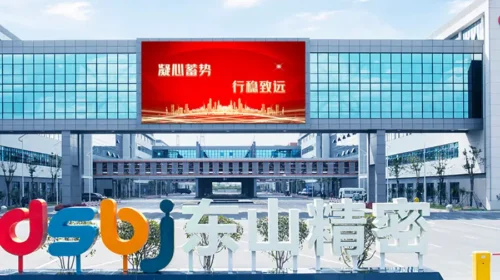Tempest of mismanagement, wrongdoing brews in China Rare Earth’s teacup

After a barrage of internal accusations, the problem-plagued company, despite its attention-grabbing name, is becoming another cautionary tale for investors
Key Takeaways:
- China Rare Earth’s subsidiaries are facing at least 45 lawsuits and nine enforcement cases over mismanagement, failure to repay debt and other claims
- The firm specializes in rare earth processing, and is distinct from the similarly named but much larger state-owned China Rare Earth Group Co. Ltd.
By Lee Shih Ta
In June, an anonymous complaint sent shares of China Rare Earth Holdings Ltd. (0769.HK) into a tailspin, abruptly derailing a recent rally as the U.S. and China engaged in a tug-of-war over rare earths, a critical high-tech material.
Shares of the rare earth processor have been suspended since June 18 and have yet to resume trading. But the company’s latest announcement on the matter, issued last week, revealed a tangle of mismanagement and poor governance throughout the company. The company disclosed its subsidiaries have been implicated in at least 45 lawsuits and nine enforcement-related cases, some related to undisclosed bank loans and potential asset misappropriations. Ongoing probes won’t conclude before October 2025, the company said.
A week before the share suspension, the stock hit a 52-week high on June 11 and was up 75% year-to-date — spurred by trade talks suggesting the U.S. would relax restrictions on semiconductor exports in exchange for similar relaxation from China on rare earths. China’s rare earth exports spiked to their highest level since 2009 as global buyers stocked up on the magnetic materials that are a key component in many high-tech products, from smartphones to new energy vehicles.
A rare earth company, but not a miner
While its name sounds impressive, all the attention going to this Hong Kong-listed company may be somewhat misplaced, since it’s only tangentially related to China’s rare earth exports.
Operationally, the company is unrelated to the much larger Shenzhen-traded, state-owned China Rare Earth Group’s subsidiary, China Rare Earth Resources and Technology Co. (000831.SZ). Founded in 2021 under the State-owned Assets Supervision and Administration Commission (SASAC), which oversees the nation’s largest state-owned companies, China Rare Earth Group holds mining quotas, dominates processing allocations and anchors China’s geopolitically critical strategy for rare earths.
By comparison, the far smaller China Rare Earth Holdings, with a market value of just HK$2 billion ($257 million) is a completely different story. The company began as a producer of refractory materials before expanding into downstream processing. Headquartered in the city of Yixing, in East China’s Jiangsu province, the company holds no mining assets or rare earth mining quotas. Its business involves sourcing rare earth concentrates and oxides from actual miners, which it then separates into dysprosium, terbium and praseodymium-neodymium oxides, which are sold to magnetic material makers for use in other high-tech products.
Money loser
China Rare Earths Holdings is hardly a cash cow either, reporting a negative 5% gross margin for its rare earth segment in 2024, though that was an improvement from the previous year. The company’s overall revenue for that year rose 10.3% to HK$757 million ($97 million), as its net loss narrowed from HK$232 million to HK$147 million. Its cash at the end of the year shrank 25% to HK$966 million from HK$1.3 billion a year earlier.
The company’s big issue is its weak governance. A letter from an anonymous whistleblower singled out its YXL Refractory Materials and YXL Rare Earth subsidiaries as problematic, alleging that asset diversions by the pair led to mounting liabilities, causing creditors, including banks and suppliers, to became increasingly vocal in clamoring for repayment.
The company said its own investigation revealed that the two subsidiaries owed debts to multiple banks and had not disclosed related bank loans to the parent company. The outstanding debts exceeded the subsidiaries’ paid-in capital, and there was a possibility that assets had been misappropriated.
Executive whistleblowers
Questions also surround a recent transaction revealed by anonymous complaints. In mid-June, China Rare Earth Holdings announced its acquisition of 1,600 kg of tungsten rods as an investment asset by issuing new shares. Complaint letters, however, flagged potentially inflated valuations and insufficient disclosure, fueling concerns about lack of transparency. In a dramatic twist, founder and legal representative Jiang Quanlong and his son, CEO Jiang Dawei, both complained about this transaction, even though the pair were involved in preparing its terms and the board previously approved the deal unanimously.
The situation escalated when Jiang Dawei abruptly resigned on July 6, citing personal reasons. Separately, it was revealed that founder Jiang Quanlong faces overdue repayments on personal debts of more than 200 million yuan. Compounding concerns, Jiang Quanlong became entangled in legal proceedings in 2017 when the owner of Singapore’s Marina Bay Sands resort sued to recover about HK$108 million in gambling debts. Such accusations have fueled conjecture about potential links between allegations against the company and Jiang Quanlong’s personal financial problems.
In response, the Hong Kong Stock Exchange operator called on the company to establish an independent committee and hire forensic accountants to conduct a thorough investigation. Two reports containing each group’s key findings are expected in October and November, indicating the trading suspension is likely to continue until the probes conclude.
The China Rare Earth Holdings case serves as a cautionary tale to investors. When hype occurs around a company’s core business, in this case rare earths, its financial health and governance problems can often fade into the background. Whether this company can return to compliance and resume trading anytime soon now hinges on findings from the investigation and suggestions for remedial action. In the meantime, investor confidence in the company has been significantly eroded.
To subscribe to Bamboo Works weekly free newsletter, click here





